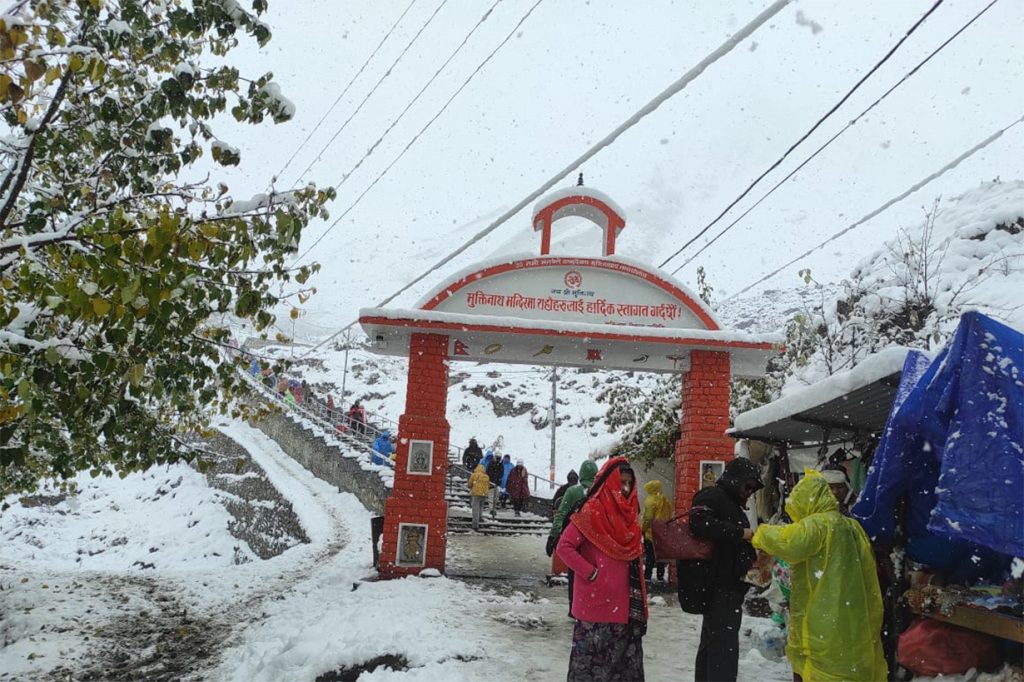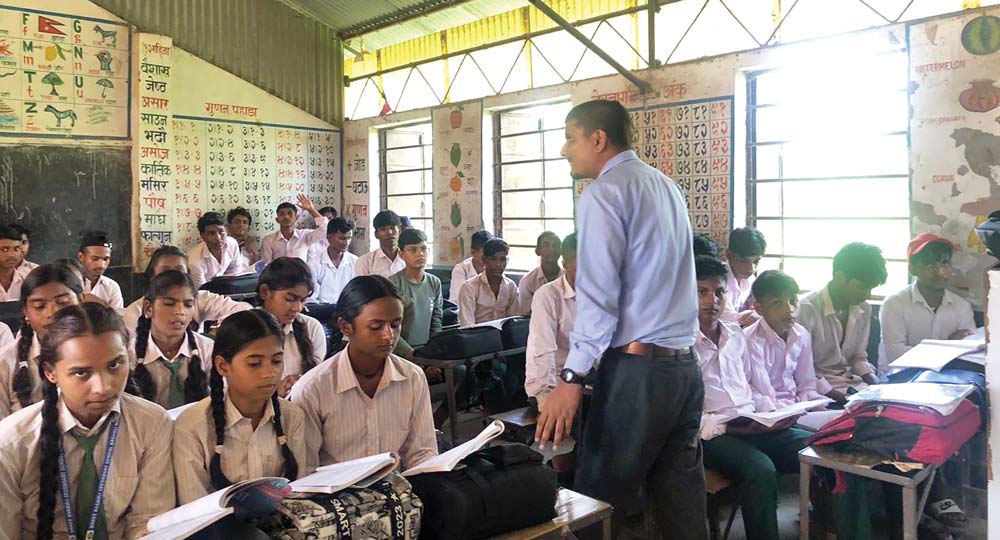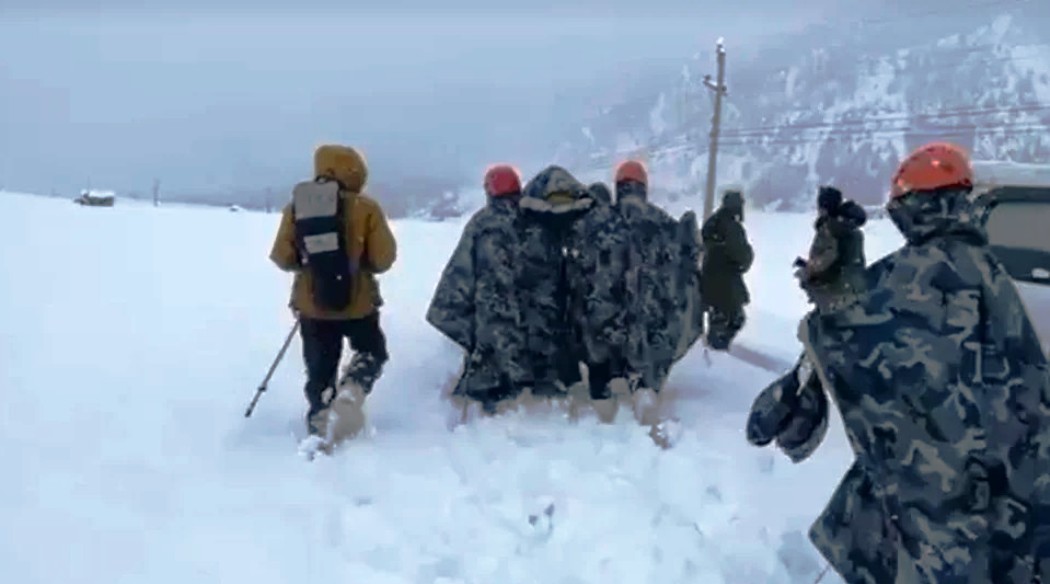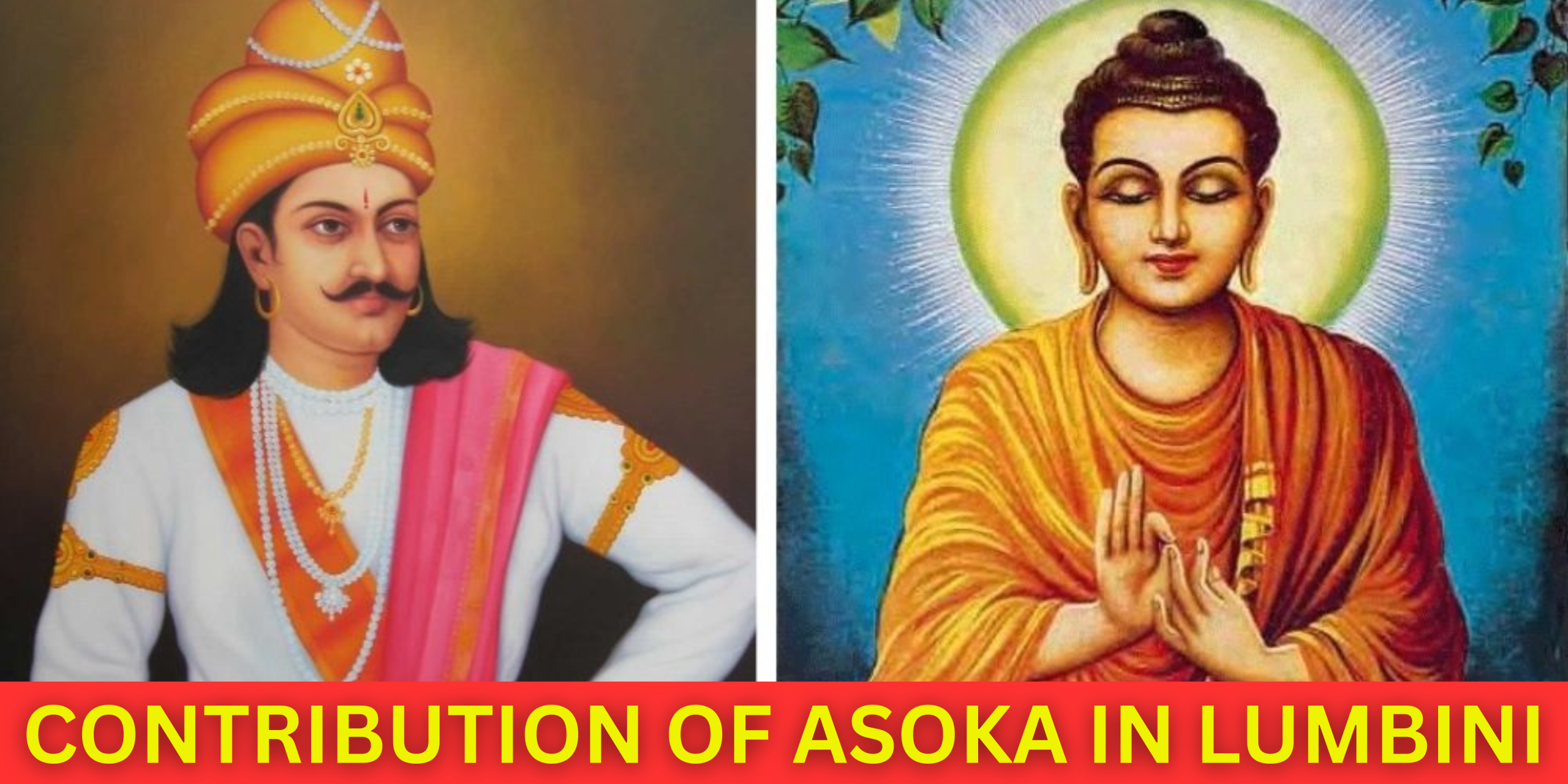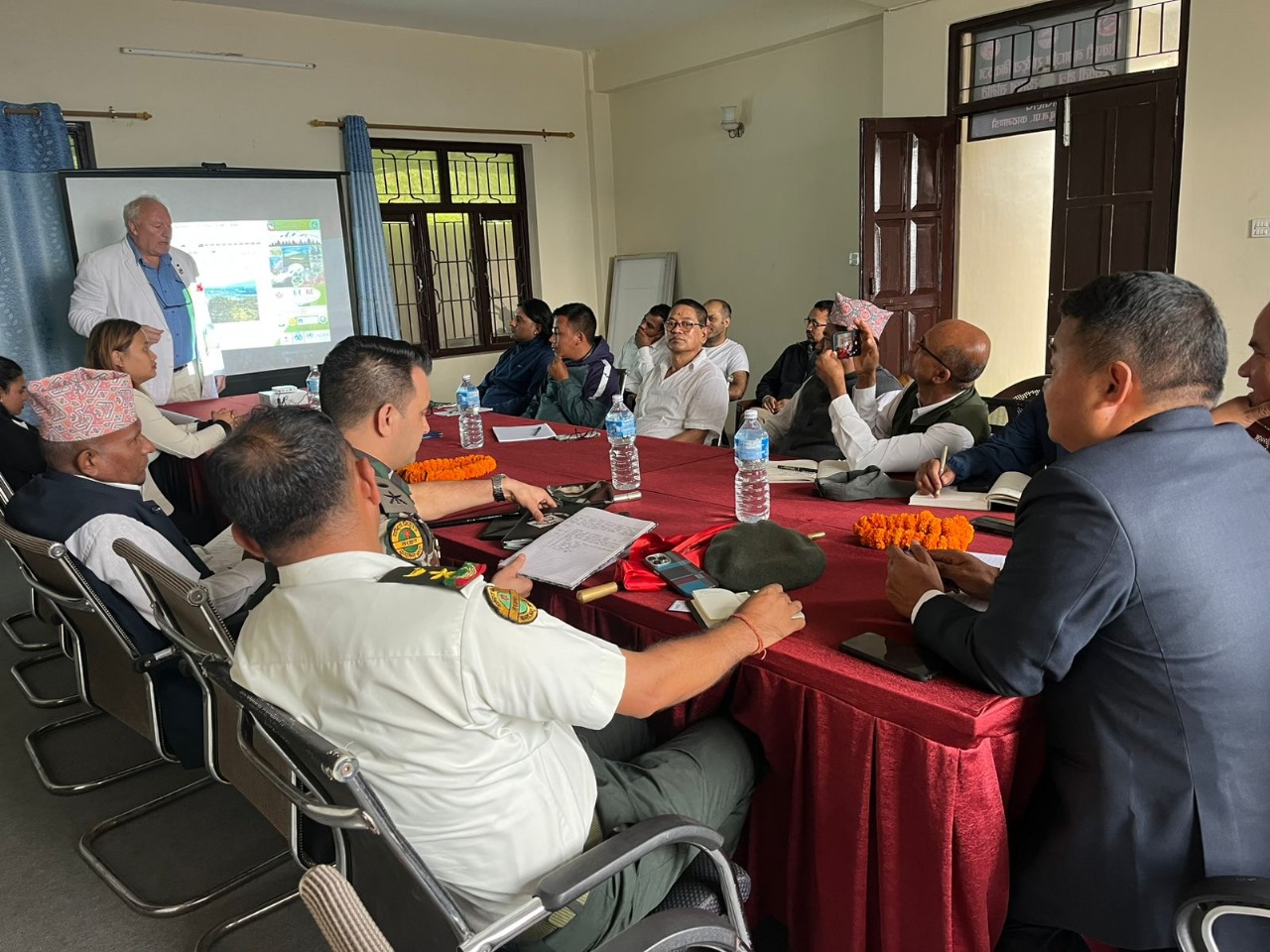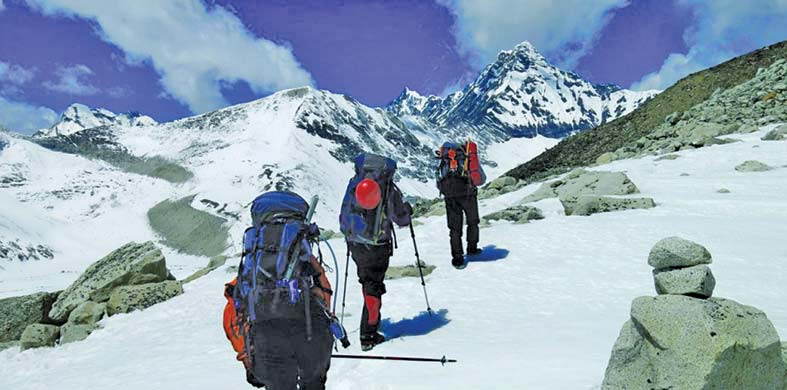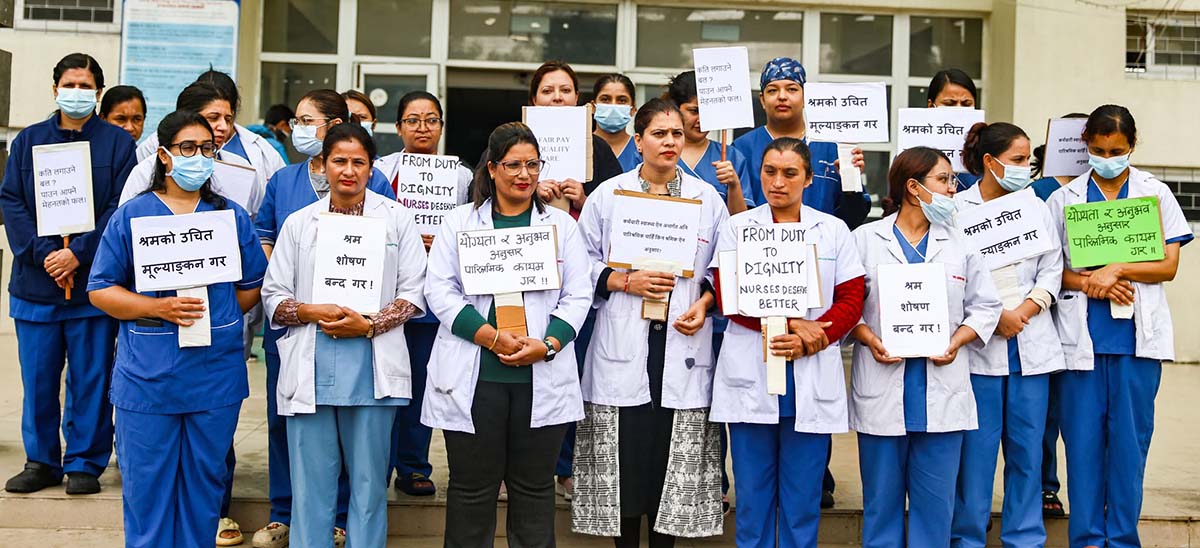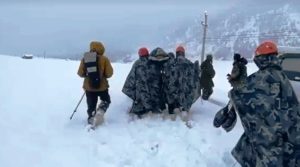Mustang, 28 Oct: After nearly three years of minimal snowfall due to climate change, the Himalayan district of Mustang has finally experienced significant snowfall this year, surprisingly as early as Kartik. The snow, which usually falls at the end of Mangsir (December), began early this morning and continues to fall steadily.
For several years, Mustang residents had not seen heavy snowfall, which had negatively affected agriculture, tourism, and biodiversity. This year, snowfall has been recorded above 3,000 meters, including in Muktinath and upper Mustang areas such as Ghami and the surrounding highlands. The famous religious site of Muktinath Temple and its surroundings remain blanketed in snow.
Continuous rain is falling in lower areas like Chhusang in Baragung Muktikshetra–3, while upper regions are covered in snow.
Trails Blocked and Travelers Stranded
Popular trekking routes — including the Thorong La Pass trail via Manang, Tilicho via Jomsom and Thini, and Dhampus Peak near Dhaulagiri Icefall — have been blocked due to thick snow. The Korala Road in Upper Mustang has also become difficult for vehicles to pass.
Local authorities had already issued public notices urging travelers to avoid high-altitude trekking routes. Heavy snowfall in the Muktinath area has created difficulties for pilgrims visiting the sacred site. Because of the snow and freezing temperatures, pilgrims have been unable to bathe in the 108 water spouts or the sacred ponds as ice has formed around them.
Vehicles returning from Muktinath have been stranded due to snow accumulation, especially near Khinga, according to Baragung Muktikshetra–1 Ward Chairperson, Pravesh Gurung. Police have also requested people to avoid traveling on the road between Kagbeni and Muktinath. Although the snowfall has affected daily life for locals and tourists, no human or physical damages have been reported so far.
Blessing for Farmers, Tourism, and Wildlife
Ward Chairperson Gurung remarked that while it’s natural for Himalayan regions to receive snow in winter, snowfall this early in Kartik is surprising. Although thick snow has caused slight damage to apple trees, it is largely beneficial for farmers, tourism operators, and biodiversity. Mustang’s apple harvest season is nearing completion, and leaves usually fall by the end of Mangsir.
“This snowfall would have been ideal during leaf-fall season, but even now it has positive effects overall,” Gurung said.
According to Dr. Lalmani Aryal, Head of the Veterinary Hospital and Livestock Service Center, the snowfall will greatly help pasturelands at higher elevations, which had suffered from a lack of snow in recent years. The new snow is expected to regenerate grasslands and support livestock grazing.
In recent years, the absence of snow forced wild animals, including snow leopards, to move closer to human settlements in search of food, increasing human-wildlife conflict. Aryal said this year’s snowfall will help restore balance between livestock and wildlife habitats.
Similarly, Agricultural Knowledge Center Chief Rajesh Gurung noted that the snowfall will be highly beneficial for apple orchards and cereal crops such as barley, buckwheat, millet, and maize. Snow softens the soil, replenishes underground water layers, and reduces crop diseases — leading to increased productivity.
Hotel Grand Sambala operator, Suraj Gurung, expressed optimism that if snowfall continues at this rate for a few more rounds, a national ski competition could once again be held at Muktinath slopes, as organized three years in a row before the dry winters.
Local tourism promoters, including Janapriya Youth Club President Kaisang Thokya Thakuri, also believe the snowfall will boost tourism as domestic and international visitors flock to Mustang to enjoy snow and winter scenery.


